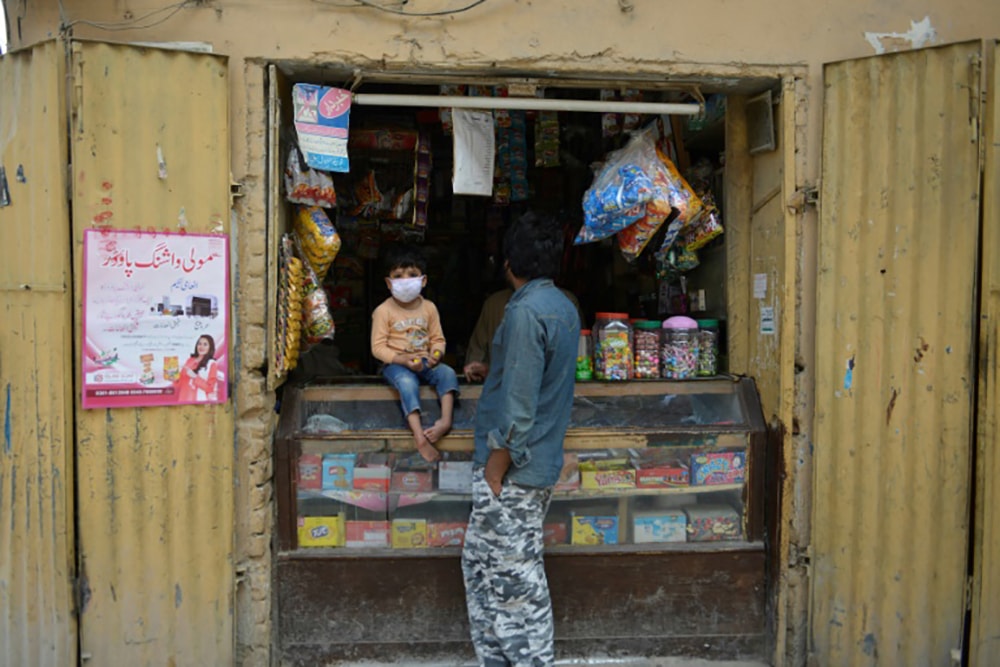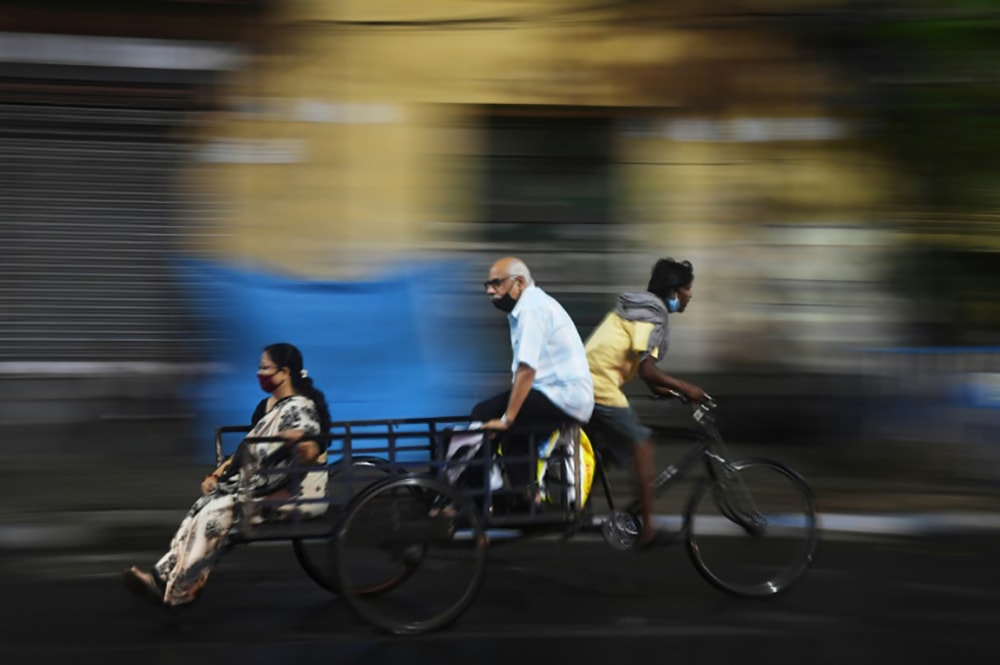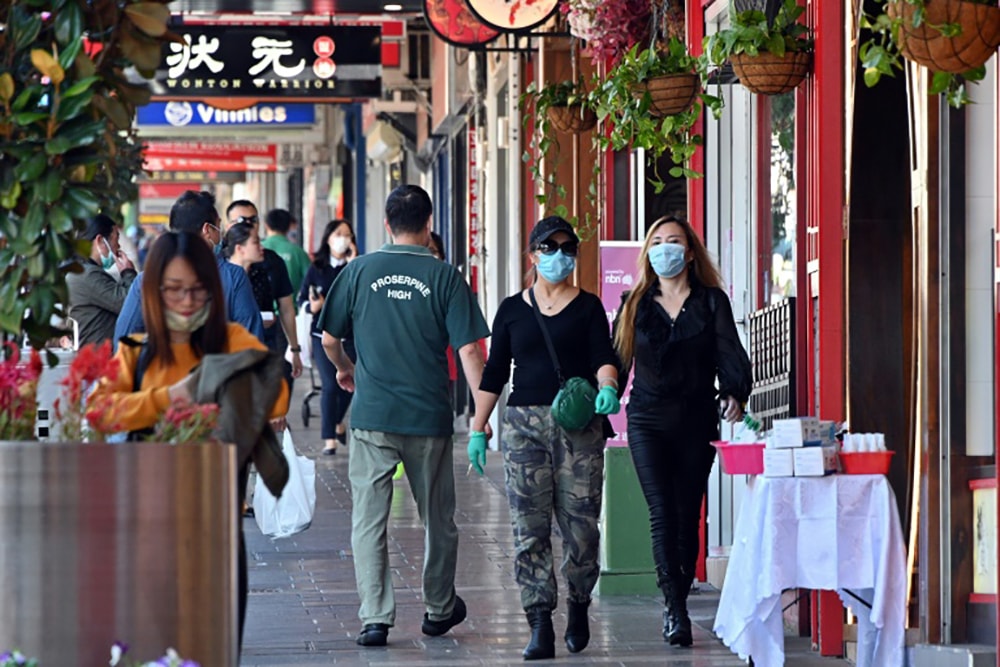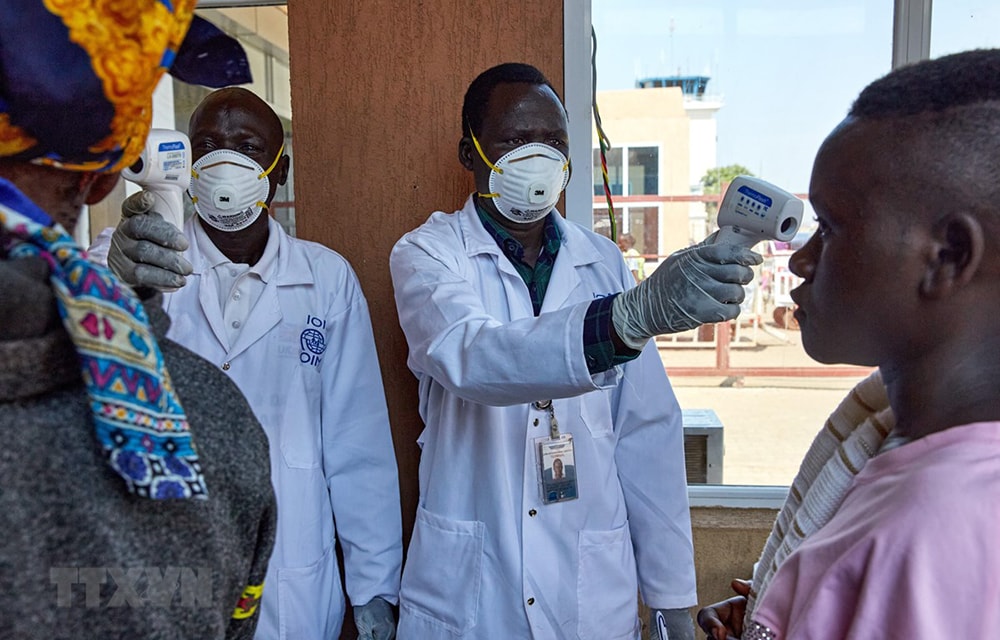Covid-19: The crisis has no end in sight
(Baonghean) - In countries hit by Covid-19, the question is when can people return to work and normal life? For most of the rest of the world, the nightmare has yet to begin.
The worst case scenario has not happened yet.
Part of the horror is that many poorer countries will not have the wherewithal to act in the face of a pandemic. Moreover, without international organization and leadership in the face of a global crisis, they cannot rely on help from richer countries.
So far, with the exception of Iran, the countries that have been hardest hit have been those with the world’s best economies, scientific and health systems; and even Iran has a relatively functioning health system. What may lie ahead is the spread of the coronavirus across conflict-torn countries, packed migrant camps and detention centers in places like Syria or Bangladesh, crowded cities like Mumbai, Rio de Janeiro or Monrovia where social distancing is impossible…
 |
| A father takes his son to a grocery store in Rawalpindi during Pakistan's nationwide lockdown. Photo: AFP |
At that time, it would not only be a disaster for them but also for the rest of the world, as raw material supplies are disrupted, fragile economies collapse, the rich and poor become more divided, and the virus cannot rule out the possibility of returning with "double force" in the northern regions.
So far, the most vulnerable regions have reported relatively few cases of Covid-19, one in Yemen, scattered across Africa and the Middle East. But that may be due in part to underreporting or deliberate suppression. The numbers are rising, and as the world has seen, Covid-19 is likely to expand suddenly and rapidly.
A survey by the International Crisis Group (ICG) said the full impact was hard to predict, but “if the disease spreads widely in dense urban centers in fragile countries, the situation could be nearly uncontrollable. An already severe economic slowdown would disrupt trade flows and cause unemployment, creating losses on levels that are hard to predict and grim to contemplate.”
 |
| The nationwide lockdown in India will be extended until at least May 3. Photo: AFP |
“The Real War”
To get a sense of the dire situation in some developing countries, consider one of the most critical medical devices used in treating Covid-19: ventilators. According to a recent estimate, the US has about 160,000, while Sierra Leone has 13, South Sudan has four, and the Central African Republic has three. In Venezuela, where 90% of hospitals are currently facing shortages, according to a report by the International Rescue Committee, there are only 84 intensive care beds for a population of 32 million.
“The lesson of this crisis is that the weakest links in the global health chain threaten health everywhere. We cannot afford to lose these weak links, and must scale up efforts in war-torn countries and communities to improve their chances of survival.”
In the United States and Europe, governments and businesses have been able to pay many laid-off workers at least a portion of their wages, and others are eligible for unemployment benefits. But billions of people in Africa, Latin America and South Asia have no safety net and no savings. The United Nations has warned that income losses in developing countries could exceed $220 billion.
 |
| Australia's unemployment rate is expected to rise from 5.1% to 10% in the second quarter due to Covid-19. Photo: AFP |
The International Monetary Fund (IMF) and World Bank (WB) have been quick to offer billions of dollars in emergency loans to poorer countries, though they warn that this will not be enough. Countries with relatively stable governments, such as Peru, have been quick to respond; while stricken countries such as Haiti and Venezuela have had little protection in place. Some “dictatorships” in the West, such as Egypt, have been seen as using the pandemic to tighten their grip on power. In the Southern Hemisphere, the effects of the pandemic may be mitigated by young populations, such as in African countries such as Niger, Angola, Chad, Mali, Uganda and Somalia, where nearly half the population is 15 or younger. In the United States, that figure is just 19%.
UN Secretary-General Antonio Guterres and Pope Francis have called for a halt to all global conflicts to focus on what Guterres called “the real war of our lifetimes.” Last week, Saudi Arabia announced a ceasefire in its war against Houthi rebels in Yemen, and armed groups have expressed a desire to stop fighting in Colombia, Cameroon and the Philippines. The Afghan government and the Taliban are both launching efforts to contain the spread of the virus. And Russia could feel the burden of supporting the Syrian military if Covid-19 hits its economy hard.
But the self-proclaimed Islamic State (IS) is calling on its supporters to step up their efforts. Houthi fighters have not responded to Saudi Arabia’s ceasefire proposal, and fighting is escalating in many areas of sub-Saharan Africa…
 |
| Measuring passengers' body temperature to prevent the spread of Covid-19 at the international airport in Juba, South Sudan, January 31, 2020. Photo: AFP/TTXVN |
Prepare for the next front
It is understandable that rich-world governments have focused primarily on tackling the Covid-19 crisis within their borders. There has never been anything like the coronavirus that has turned so much of the world upside down in such a short time. But it is disappointing that a threat that is global, with the potential to damage the global economy, has resulted in so little international cooperation and so little global leadership.
This is a crisis in which some countries, such as the United States, could emerge as leaders. But the Trump administration has done little to inspire the world from its domestic failures. The response in Europe has been confused and divided: the president of the European Union’s main scientific body resigned last week in protest at the bloc’s handling of the crisis. Meanwhile, the World Health Organization (WHO) has come under heavy criticism from those who believe its complicated relationship with China could undermine its mission.
 |
| The global crisis caused by Covid-19 is expected to get much worse than it is now. Photo illustration Getty |
This situation is unlikely to change, especially as the pandemic continues to rage in the United States, Italy, Spain, and many countries in the Northern Hemisphere, and especially in a year when the United States holds a presidential election, the fight against Covid-19 is more likely to be politicized. But Washington’s weakness should not prevent teams of experts in developed countries – including think tanks, media, universities, and NGOs – from focusing on a strategy for the next and possibly fiercest front in the fight against Covid-19. Many have already begun to do so, recognizing that this may be the defining battle of our time, and if the world needs a global response, it is now!

